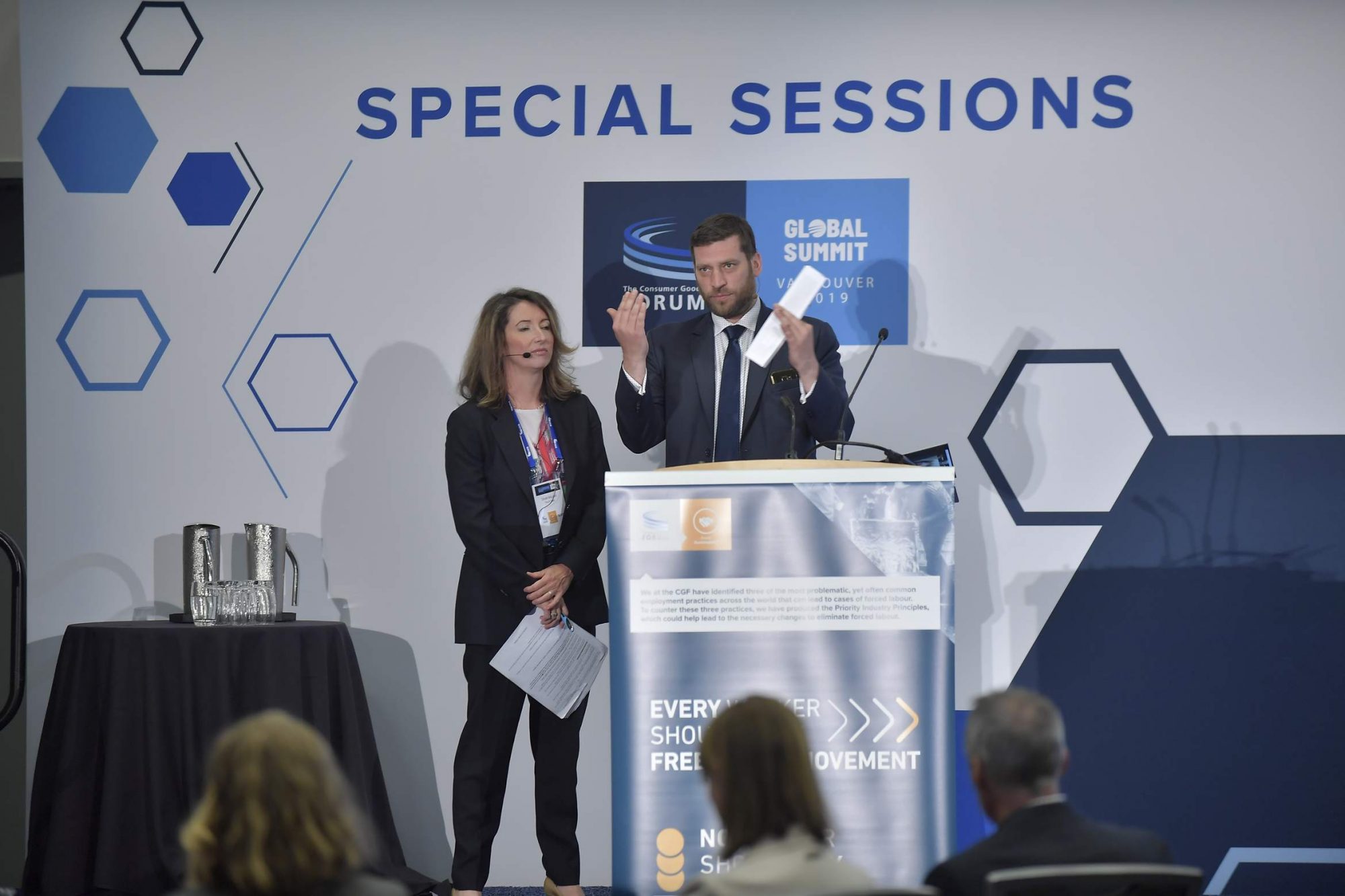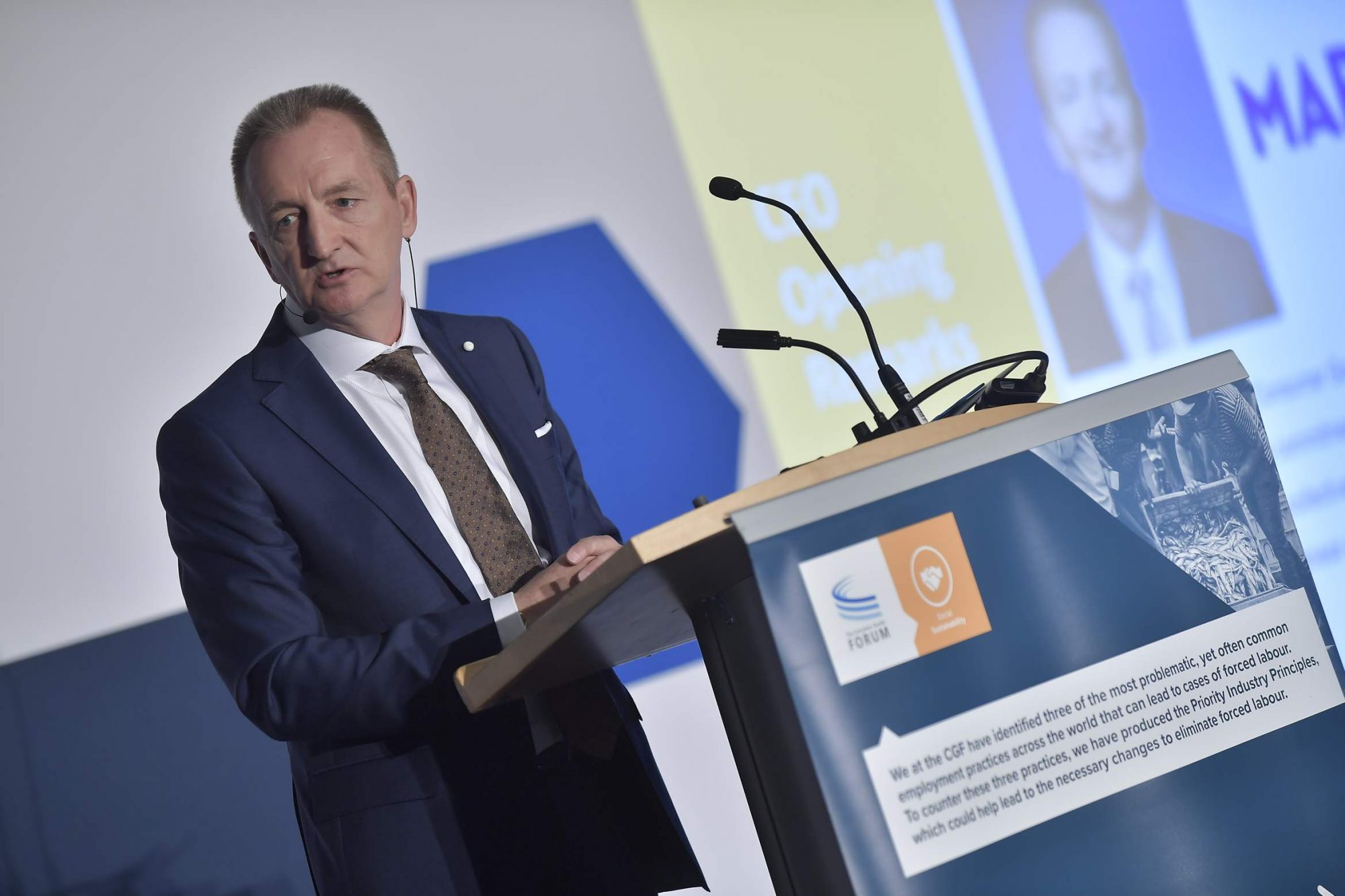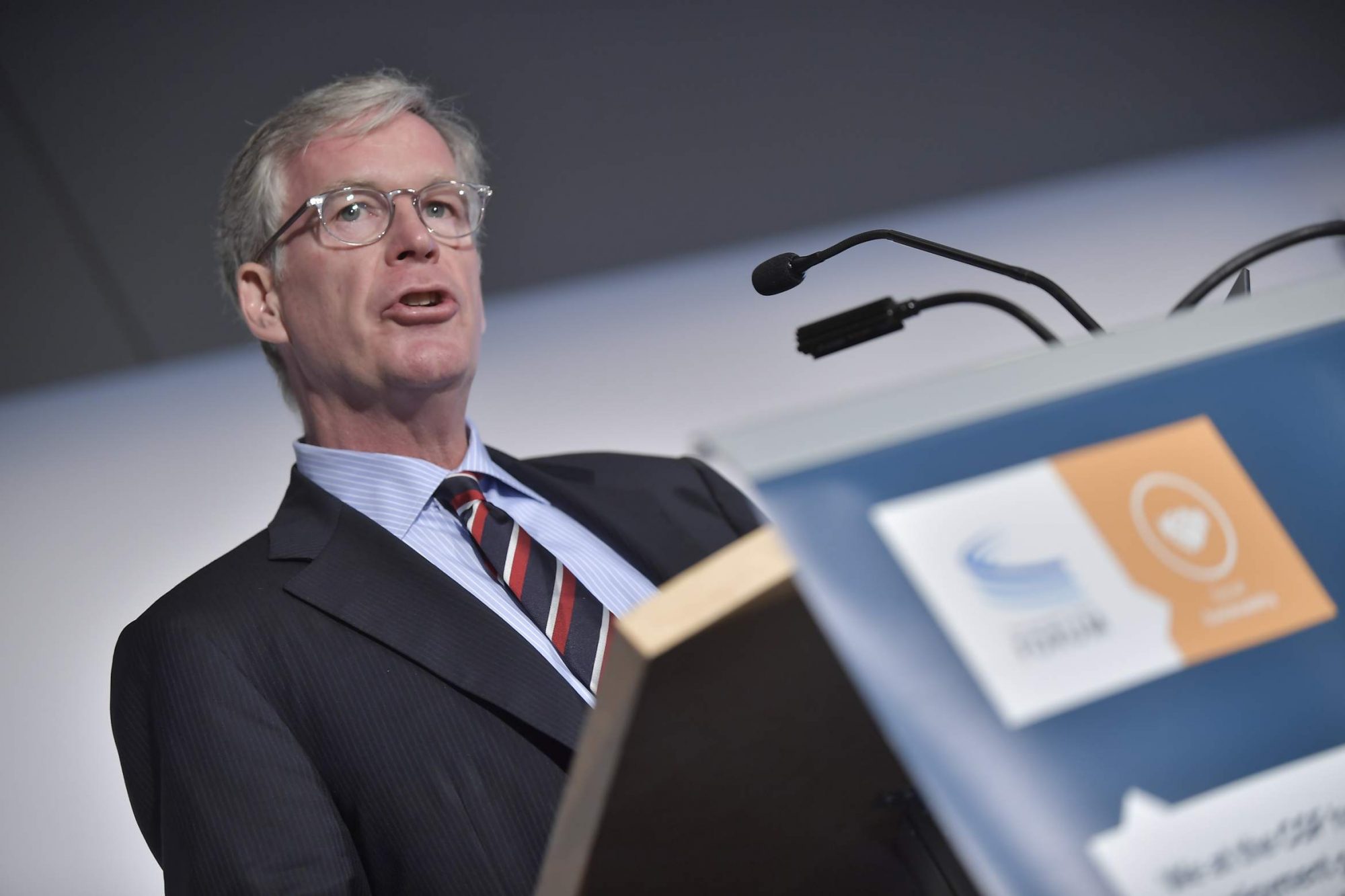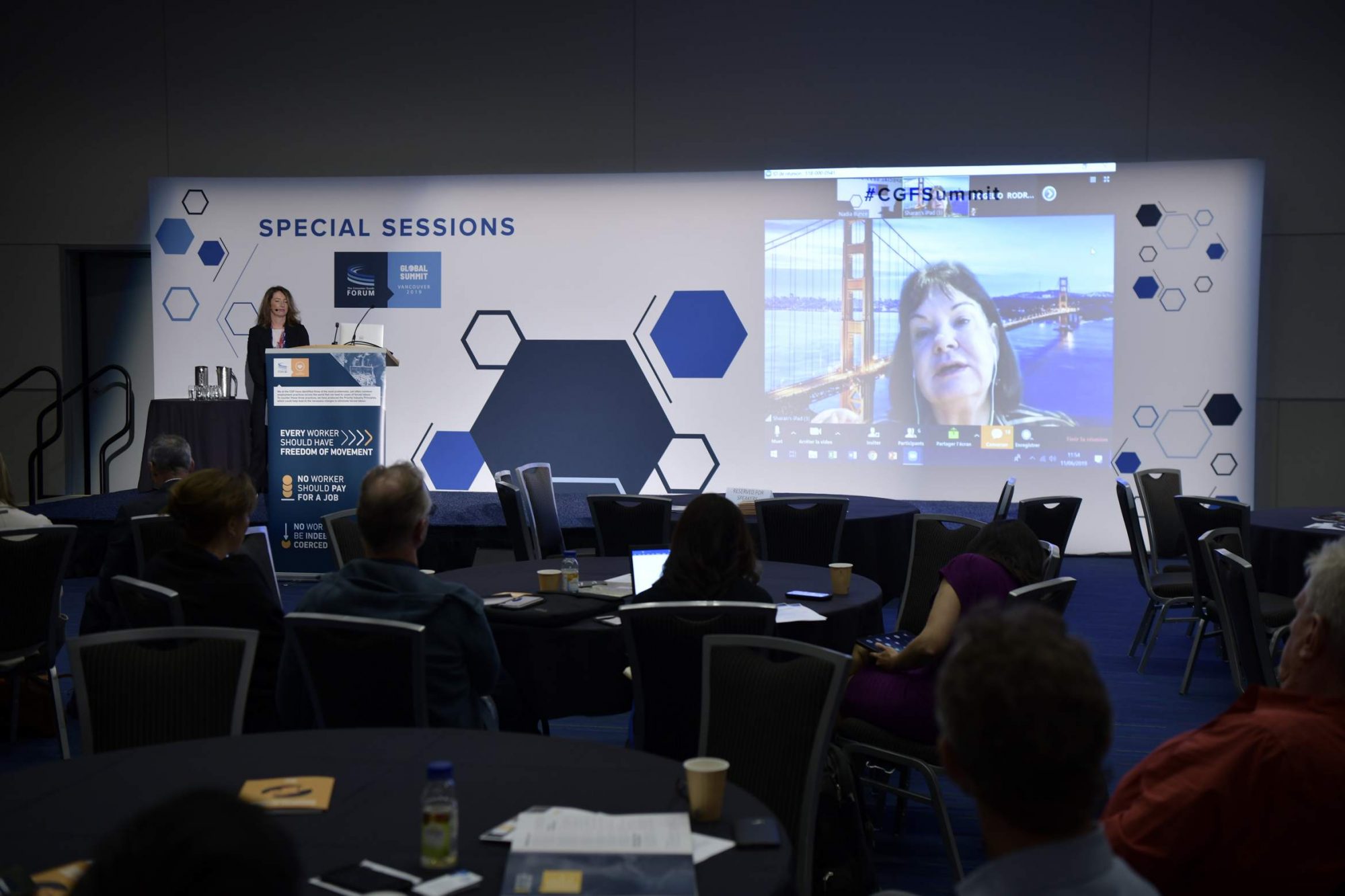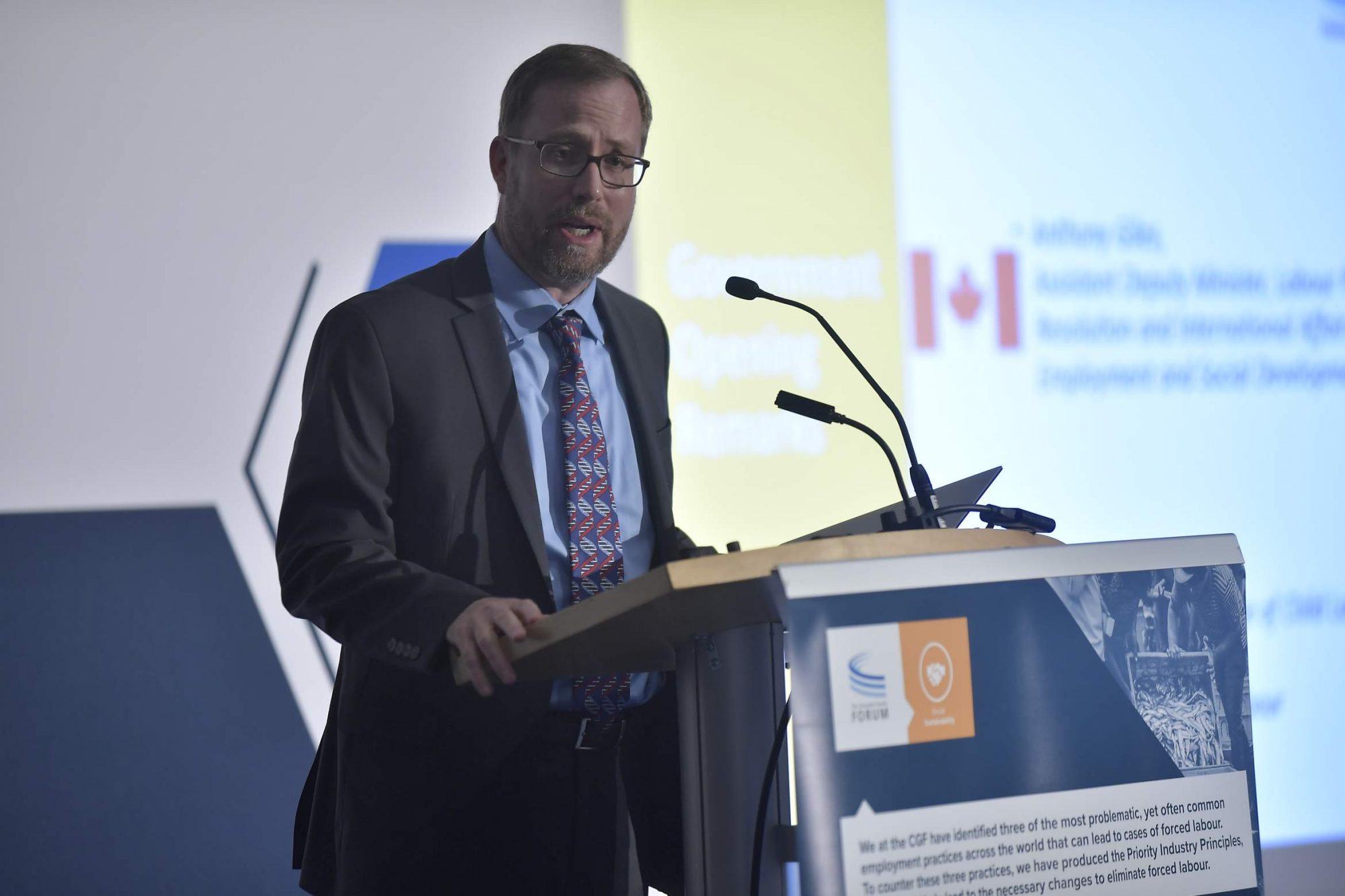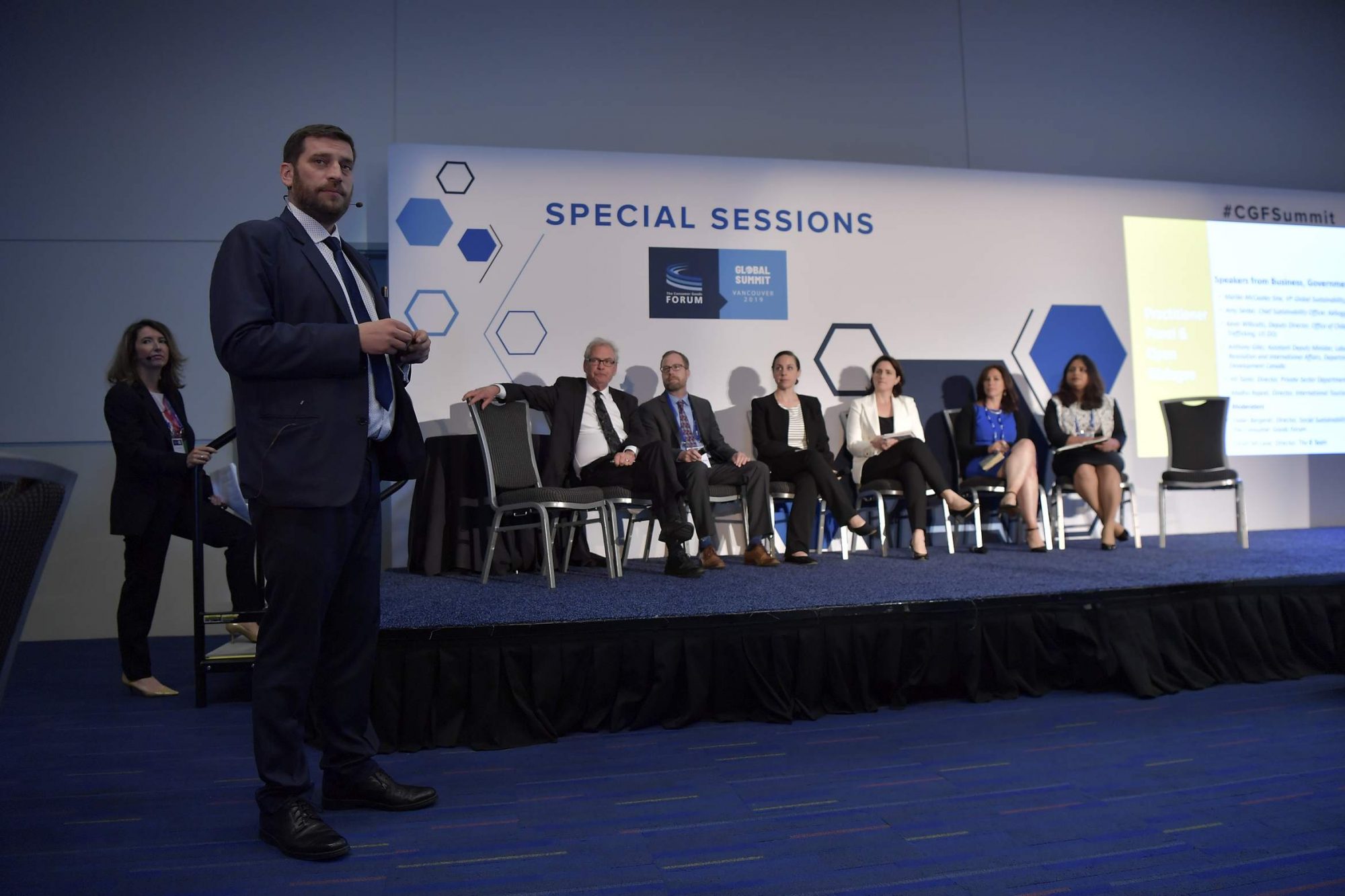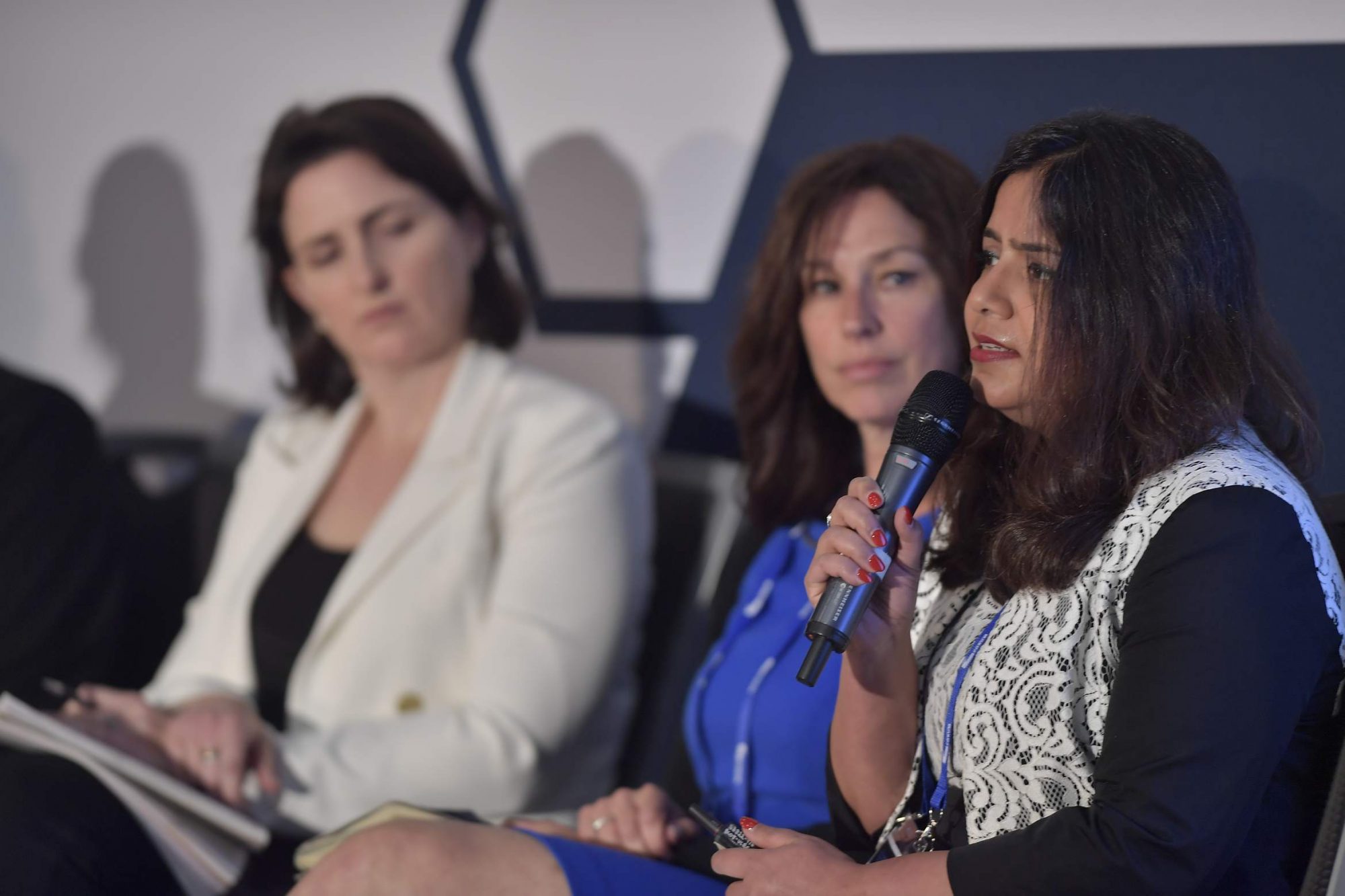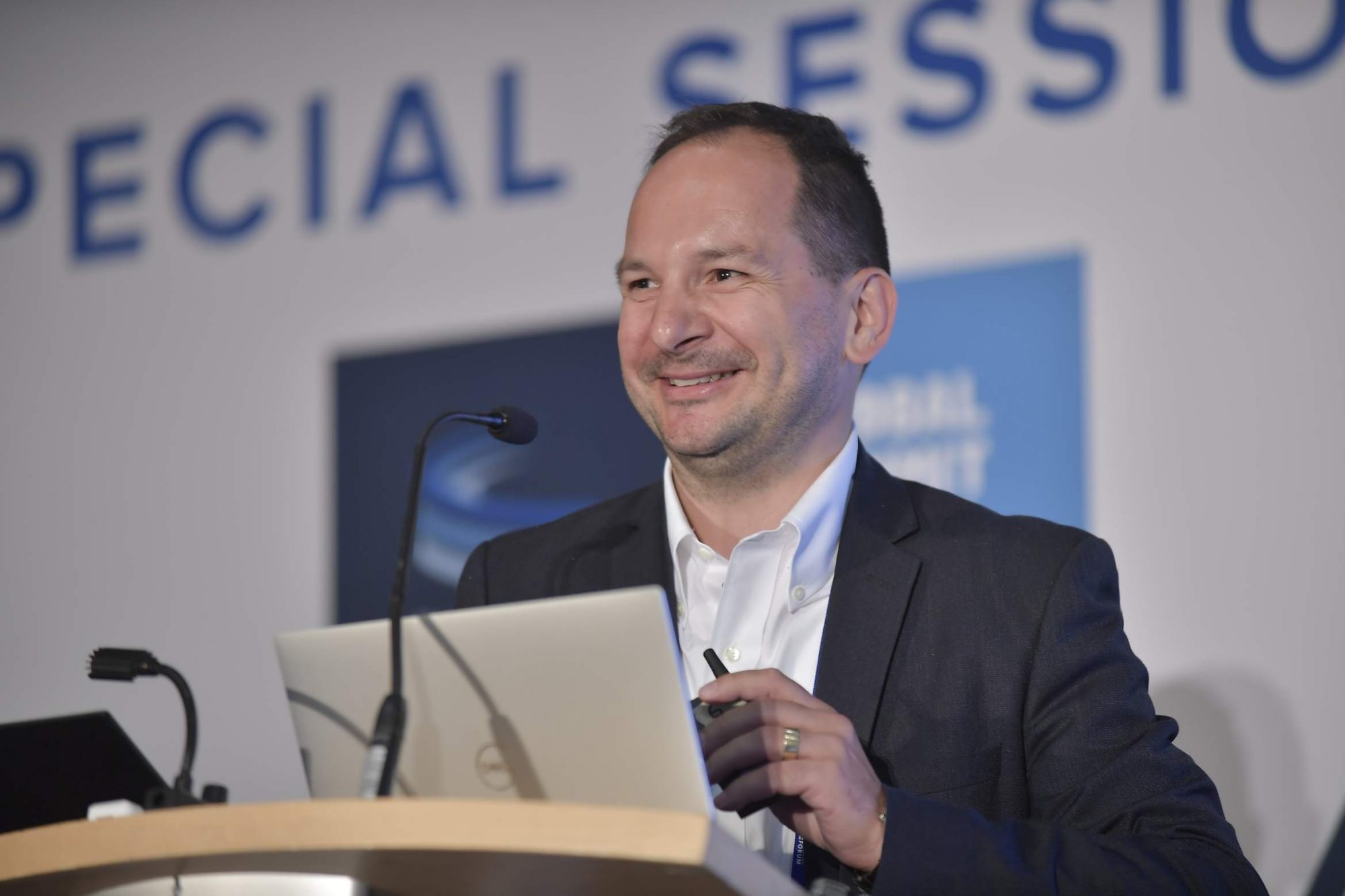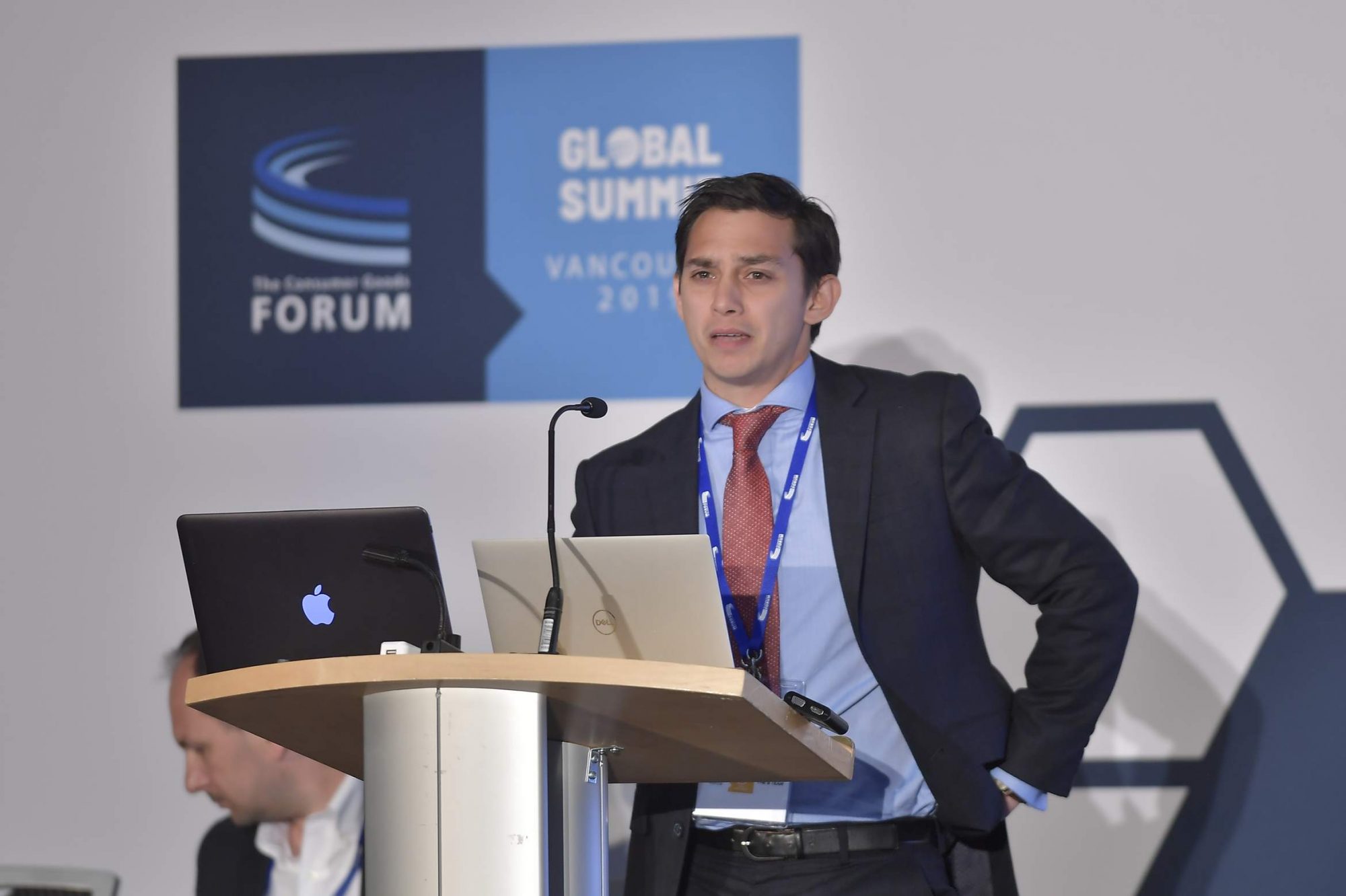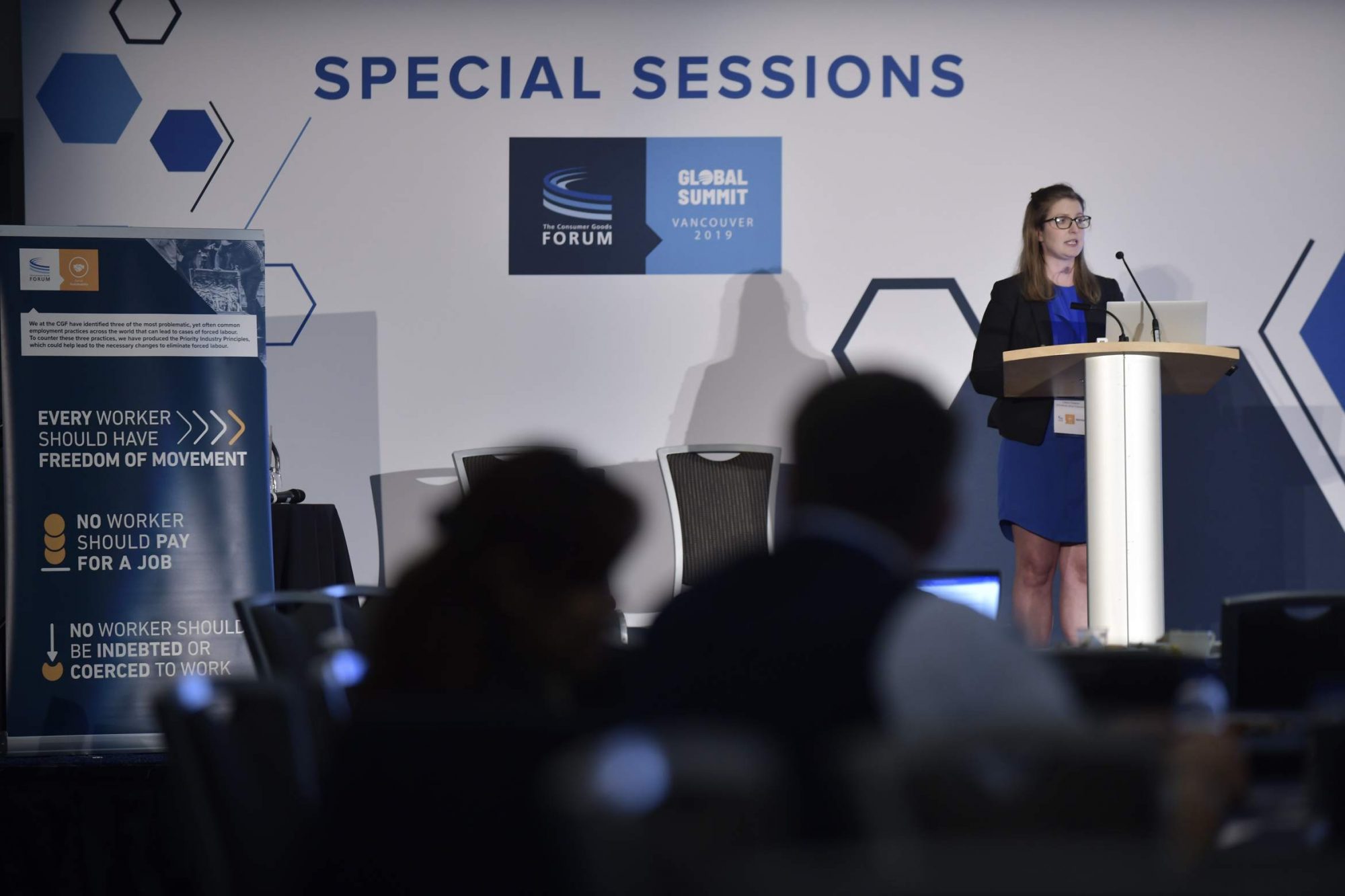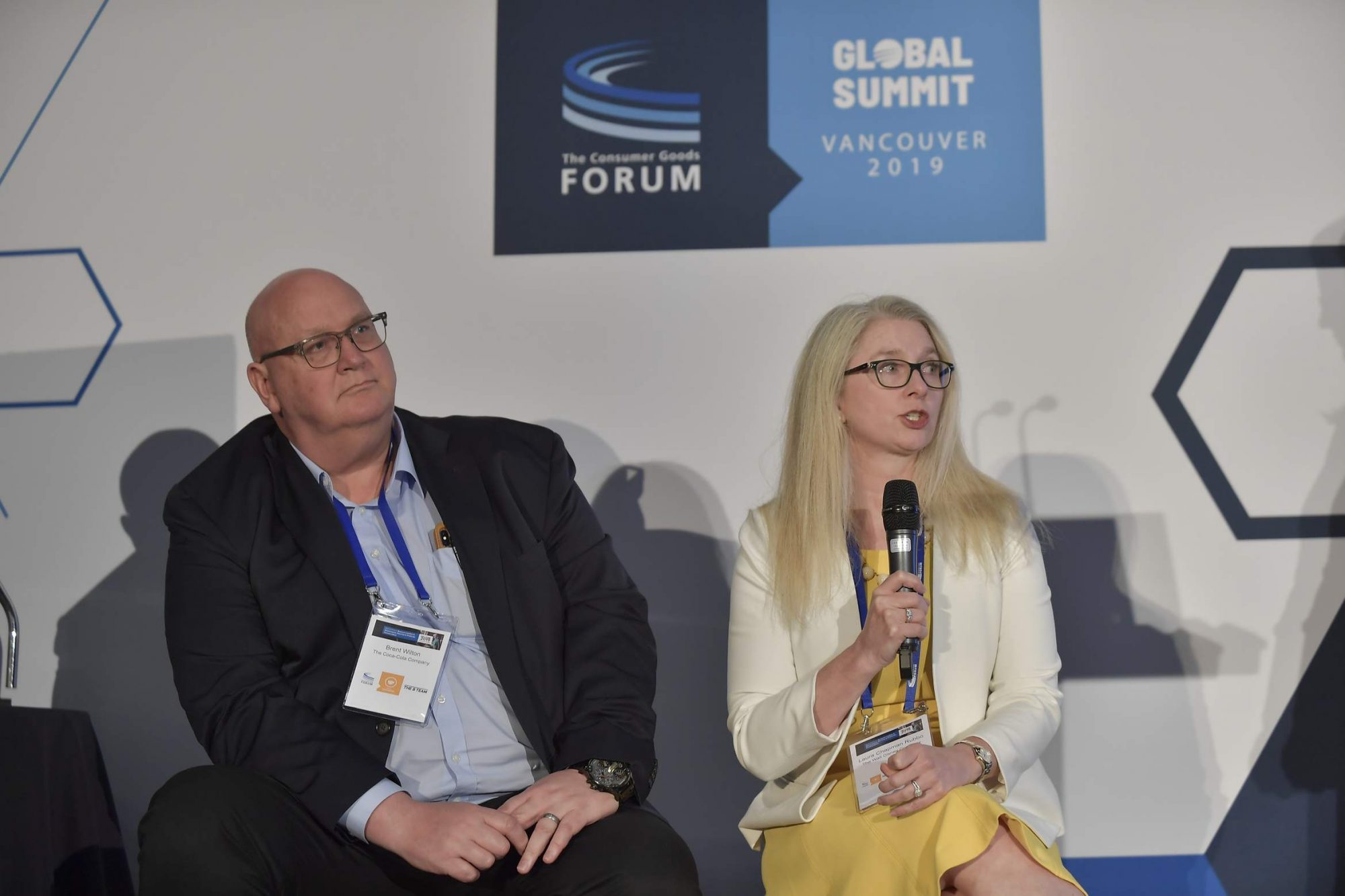On June 11th, The Consumer Goods Forum (CGF) and the B Team held a special event on forced labour, entitled “Business Leaders and Governments Working to Eradicate Forced Labour”, ahead of the CGF’s flagship event, the Global Summit in Vancouver, Canada.
The high-level event brought together an impressive lineup of business leaders, senior government representatives from Canada and the United States, and experts from civil society organisations to speak out publicly on the issue, share knowledge and discuss the importance of collaborative advocacy and action to eradicate forced labour. The CGF commends the speakers from business and government who did not shy away from speaking up on an issue that needs attention in order to be resolved, and used this important platform to announce progressive action plans, including the Government of Canada who announced that they have ratified the ILO Protocol on Forced Labour. We need more leaders against slavery of this sort, to stand up against this issue to help the millions of invisible victims who remain trapped in forced labour.
Business Leaders Speak Up for Change
Prominent CEOs from three CGF member companies, Mars Incorporated, Kellogg Company and Danone, took to the stage to share their respective companies’ progress on the issue of forced labour, as well as the challenges that they face.
Grant Reid, CEO, Mars, Incorporated framed the conversation by telling delegates that one year ago he launched the CGF’s business call to action at the Global Forum for Responsible Recruitment and Employment in Singapore. However, one year later, millions of people are still counting on us to act with greater urgency and deliver results. As an industry and global community, we have not made the progress that we need to make on the issue, he said.
Steve Cahillane, CEO, Kellogg Company spoke about the importance of partnering with stakeholders to collaborate on solutions to achieve the United Nation’s Sustainable Development Goals, and to ensure that the CGF’s Priority Industry Principles can be realised in practice for the betterment of all. We need to partner and share the seeds of progress with others around us. Fighting modern slavery is not a competitive advantage – it makes good business sense, he said.
Emmanuel Faber, CEO, Danone closed the morning session with a sobering speech, highlighting the relatively low level of engagement on this important topic. Faber, who has just become CGF’s Board Co-chair for the Manufacturer College, shared his desire to influence his industry peers to speak publicly about the matter. Not being perfect should not prevent us in starting on the journey of transformation. The more we talk about it, the more it will become an acceptable topic for discussion, he said.
Governments Stepping Up to the Challenge
Anthony Giles, Assistant Deputy Minister at the Canadian Government’s Department of Employment and Social Development officially announced that Canada will be the next country to ratify the International Labour Organization’s Protocol on Forced Labour, an important step for Canada as well as the global community taking action on the issue The Canadian Government also used the event as a forum to host a Supply Chain Consultation, seeking the views of delegates on possible measures to address labour exploitation in global supply chains. Kevin Willcutts from the US. Government Department of Labor then spoke about the Department’s various initiatives such as the launch of the “Sweat and Toil” application, which documents child labour and forced labour worldwide. He echoed words on the importance of partnership and collaboration between business and government.
Sharon Burrow, General Secretary, International Trade Union Confederation joined the event via video link from Geneva. She praised European Union for its progress in mandating due diligence approaches for all businesses to mitigate violations of human and labour rights.
Cross-Organisational Collaboration
During the morning session, representatives from Oxfam America, Mars, Incorporated, Kellogg Company, International Tourism Partnership, US Department of Labor, and the Canadian Government joined a Practitioners Panel to engage in an open dialogue on collaboration. Speakers shared their different perspectives but agreed that all actors need to come to the table, as no one will be effective at dealing with the problem alone. We must work towards zero tolerance on forced labour, said Irit Tamir, from Oxfam America, praising CGF members who walk the talk.
In the afternoon, the International Labour Organization’s (ILO) Global Business Network on Forced Labour and the International Organization for Migration (IOM) returned to the stage this year to discuss progress on the business call to action launched at last year’s Global Forum in Singapore, as well as the clear responsibility of business to respect human right in its value chains. The organisations were joined by representatives from The Coca-Cola Company, The Walt Disney Company, Immigration, Refugees and Citizenship Canada (IRCC), and BMB International who shared their experiences of partnership with the IOM’s IRIS Programme and ILO’s Global Business Network, which bring together different groups in to one conversation. There is an urgent need to have all of the key actors in one room to effect change, the panel concluded. We must be inclusive as different players bring different strengths and focus areas.
The full executive summary for the event is now available to download.
